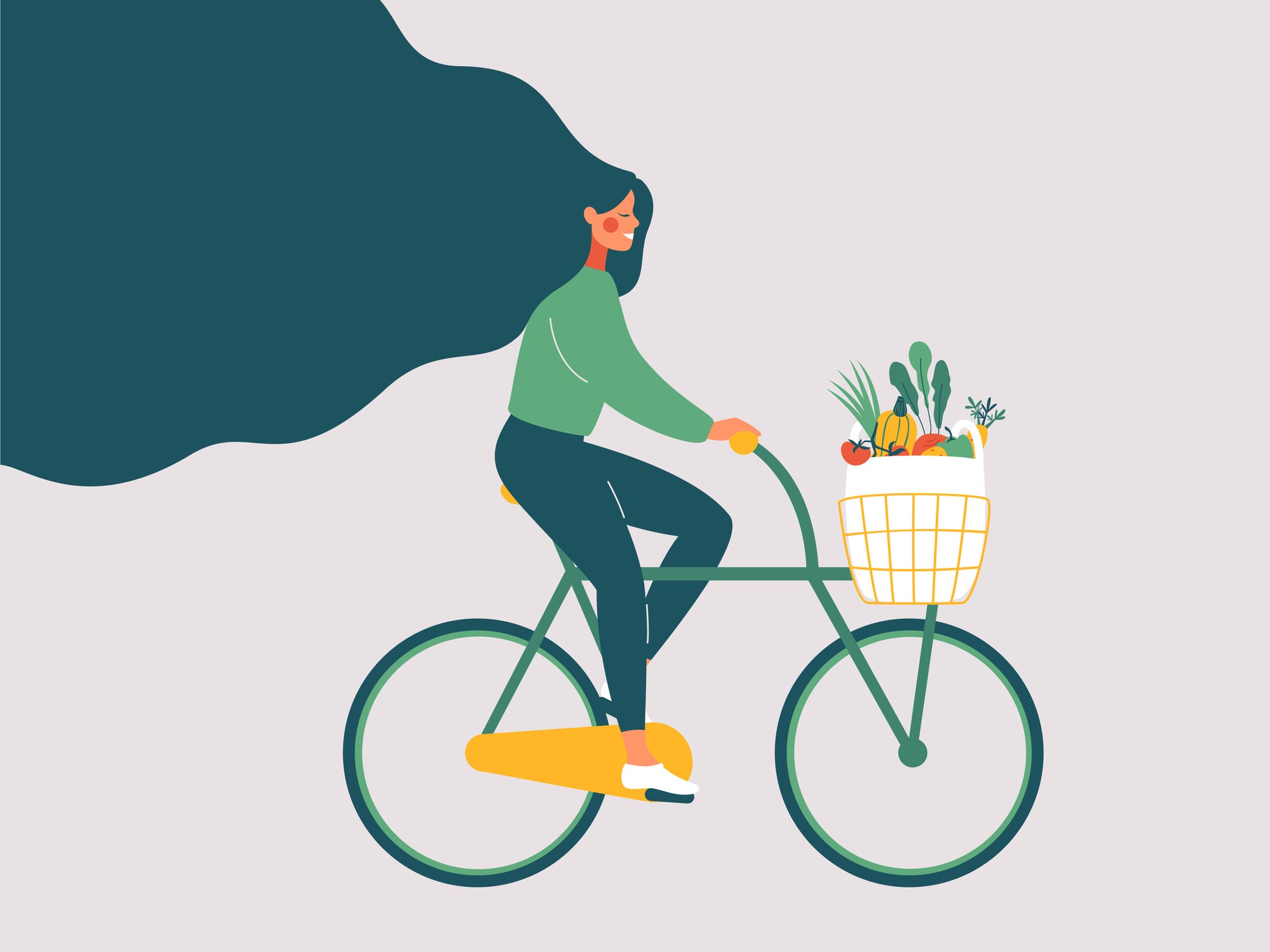Puritanical veganism is not for everyone – don’t let it put you off a plant-based diet
An all-or-nothing approach to animal products puts more people off than it serves, says Kat Smith


Your support helps us to tell the story
From reproductive rights to climate change to Big Tech, The Independent is on the ground when the story is developing. Whether it's investigating the financials of Elon Musk's pro-Trump PAC or producing our latest documentary, 'The A Word', which shines a light on the American women fighting for reproductive rights, we know how important it is to parse out the facts from the messaging.
At such a critical moment in US history, we need reporters on the ground. Your donation allows us to keep sending journalists to speak to both sides of the story.
The Independent is trusted by Americans across the entire political spectrum. And unlike many other quality news outlets, we choose not to lock Americans out of our reporting and analysis with paywalls. We believe quality journalism should be available to everyone, paid for by those who can afford it.
Your support makes all the difference.For about three years I flittered chaotically between vegetarianism and veganism. Adopting a draconian approach to my diet, I decided to forgo all animal products, then would chastise myself any time I slipped and ordered a meal at a restaurant that wasn’t 100 per cent vegan, or if I succumbed to a 2-for-1 pizza deal with friends. “That’s it,” I’d think, “I’m off the bandwagon, I’ve ruined it forever and I might as well give up.” My diet would once again become dominated by dairy and eggs because – I thought – what was the point in trying to reduce my intake of animal products if I couldn’t shun them completely?
Now, I describe myself as following a predominantly vegan diet. Predominant, because while the vast majority of my diet completely omits animal products, very occasionally I’ll give into a bit of that aforementioned pizza. Each time I “break” my veganism, I am reminded that the cheese is not really worth it – but the cycle continues, and I’ll inevitably do it again a few months later.
The all-or-nothing narrative that often surrounds veganism can feel exasperating – you’re either a completely committed card-carrying member of the plant-based club, or you’re not in it at all and your efforts are entirely wasted; you may as well go the whole hog roast.
The occasional slip-up means I’m not considered a vegan at all, let alone an “ethical vegan”, who excludes all forms of animal exploitation from their lifestyle (including the wearing of wool, leather and even the eating of honey). But should this really be the case? For those wanting to follow a vegan diet, but unsure of whether they can commit 100 per cent of the time and for life, there are still reasons for giving it a good shot.
The environmental need for a change in our diets is urgent. David Attenborough put it plainly when he said in 2020 that “the planet can’t support billions of meat-eaters,” explaining that if humans were to adopt mostly plant-based diets, “we could increase the yield of the land.”
The environmental need for a change in our diets is urgent
As much as 80 per cent of global agricultural land is used for livestock farming that accounts for less than 20 per cent of the world’s calorie supplies. According to a study by Blue Horizon and PwC, it would take just 10 per cent of the global population switching to plant-based alternatives to reduce our collective CO2 output by 176 million tons by 2030. Humans are also currently outnumbered by farm animals.
If you can successfully slash your carbon footprint by simply reducing your meat and dairy intake, should the occasional indiscretion really count against you? If more of us were almost-vegans, unafraid of the prospect of occasionally slipping up, it would still have a monumental impact on the environment, as well as animal welfare (50 billion chickens are slaughtered for meat every single year), and perhaps be more effective than the off-putting unyielding approach.
The problem is, even with the vast range of plant-based options available in supermarkets today, veganism is still not considered by many to be enjoyable, convenient, or easy to transition to. Type the phrase “Why I’m no longer vegan” into Google and you’ll be met with multiple pieces about exactly that. Expecting everyone pursuing a vegan diet to be completely perfect will only serve to push them away from even trying.
Veganism is still not considered by many to be enjoyable, convenient, or easy to transition to
Nutritionist Rohini Bajekal helps people transition to a plant-based diet, and tells me that instead of berating myself for eating a little bit of cheese, I should instead spend that effort finding a good vegan version I’ll actually want to eat. Bajekal explains that an “all or nothing” approach to veganism is “helpful for nothing. It’s important to remember why you’re doing it, and I think shaming yourself and thinking you’ve made a mess of it is not a motivating way to bring yourself back to it.”
There’s increasing appetite to shun animal products in our diets. Last year, half a million people pledged to take part in Veganuary – the biggest year yet. And while that’s great news and a step in the right direction, you don’t need to take a pledge or transform your life entirely overnight in order to make a change.
If you’re considering going vegan but are not quite sure if you can do it with no mistakes, it’s still worth a try anyway. Maybe, one day, I’ll get to a place of 100 per cent veganism. But for now, I’m at peace with my slightly turbulent commitment and happy to say when asked, I’m an almost vegan.


Join our commenting forum
Join thought-provoking conversations, follow other Independent readers and see their replies
0Comments